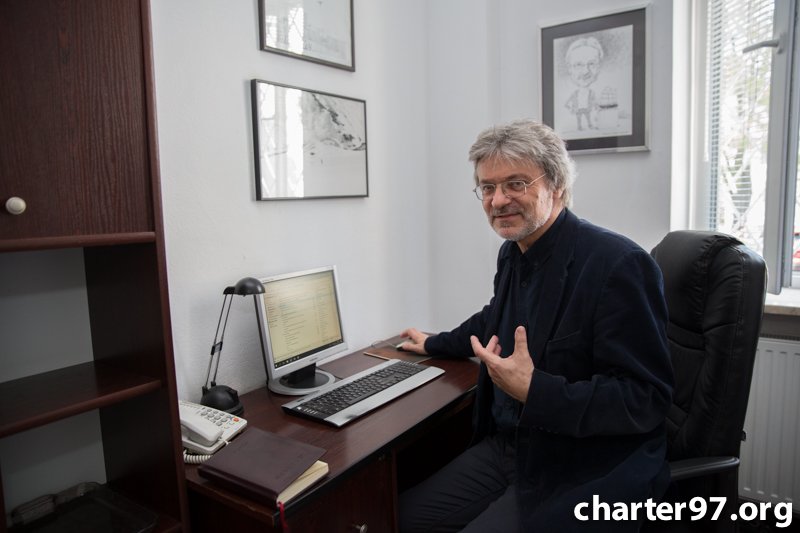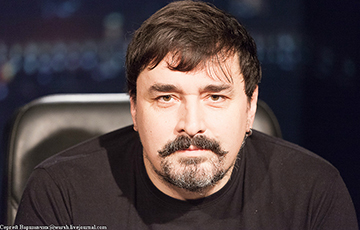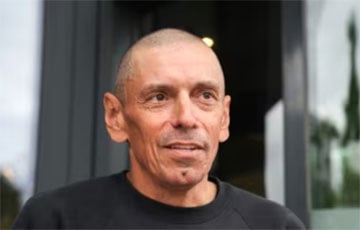Zbigniew Gluza: ‘Charter’ Raised As Response To Martial Law
- 27.07.2018, 17:59
- 10,827
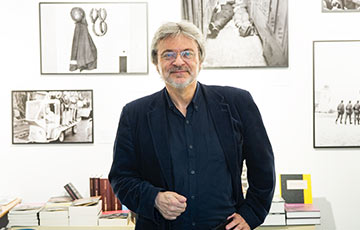
The people who have come through KARTA can be found everywhere now.
Poland has its own Charter. The Famous Polish publishing company “Charter” (“KARTA”) has been working for 36 years by now. In 1982, right after the establishment of the martial law in the Polish People’s Republic, an underground newspaper under the said name first appeared, and now it is not only one of the most renown publishing companies, but also the biggest independent center for the research of the contemporary history.
The website Charter97.org spoke with founder and leader of the “Charter” (“KARTA”) publishing house Zbigniew Gluza about his work in the underground during the transition period from dictatorship to democracy, and in contemporary Poland.
- Zbigniew, you started your working life in the official press. One of your first jobs was in the “Informatika” magazine. Why did you decide to be engaged in the underground press?
- I can tell you my job in the “Informatika’ magazine was a sort of a forced one. In the communist Poland, all youngsters who graduated from universities were obliged to work somewhere.
I graduated from the electrical engineering faculty of the Warsaw Polytechnic University, but did not want to work as an engineer. I got a job which I could not stand. I wanted to get rid of it as soon as possible. Therefore, I was glad that I managed to get into the “Informatika” magazine, which more or less suited my specialty.
In 1979, when I graduated from the university, I was already prepared, so to speak, for the opposition activities. There was an understanding that my life would turn out differently and professional activity was regarded by me as an obligation, work for a tick. I felt that the most important thing in my life was to go against the system.
Back in the student years, I was in a constant search for my own way, and I found myself in an alternative theatre. Briefly speaking, this theatre set itself against the system and was a form of looking for the real you outside the Communist limits. If the Solidarity movement in Poland worked freely for a longer period, the theatre would have become one of the spheres of my civil activity.
However, the martial law in 1981 disrupted all our plans. It became obvious that we needed to prepare ourselves for a major confrontation.
That was when we switched to the consistent opposition activity and started publishing a small newspaper called the Charter. Initially, it was made on a typewriter. We just rewrote it, trying to make as many copies as possible. The Charter raised as a response to the martial law and to what was happening in Poland.
For several years I was an official employee of the “Informatika”, and in my spare time I was in charge of an underground newspaper, which turned into an almanac. The Charter became a form of reflection of the Communist reality with the idea of transforming the system into some other realm.
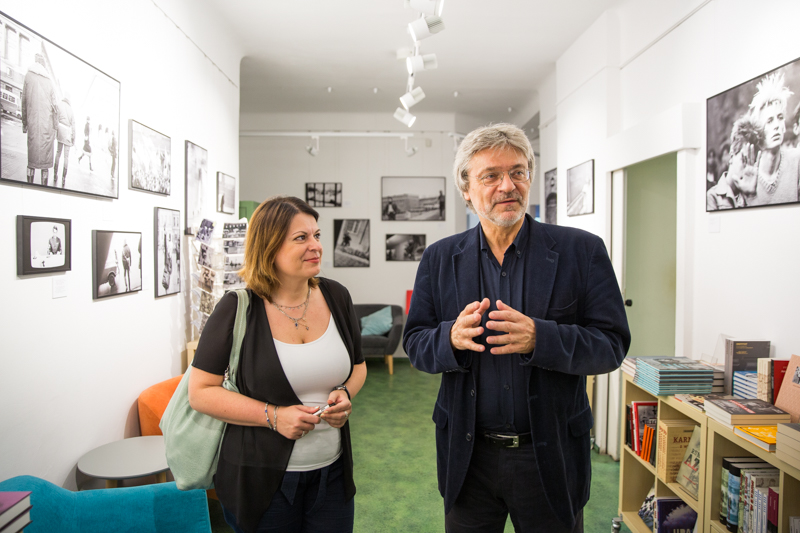
-And then you got arrested…
- Yes, I was jailed for half a year in 1985. This, in fact, made it impossible for me to return to my previous job. They simply threw me out of there.
My further life was a search for myself and my place on Earth. After the arrest I could not find a job, but it only facilitated my opposition activity. It was then when we created the Eastern Archive (Archiwum Wschodnie), which I attended to simultaneously with publishing an underground newspaper.
In the end of it all I finally found some job, but when the situation in Poland started changing, I manage to devote several months exclusively to prepare the Charter publishing company for coming out of the underground. The company turned into the center which attended to the researches of the entire XX century by then. The Charter became historical.
- The years of your civil activity fell for the times which were rather difficult for Poland – the martial law of 1981, the threat of the possible repeat of the Czechoslovakia scenario, when the Russian tanks invaded there. It seemed that the communist regimes were steady and there was no hope. Where did the Polish resistance to the communist regime take strength?
- The confidence that the Communists will lose appeared after 16 months of open work of the Solidarity trade union, as well as its large numbers. Imagine that in a 30 million country almost 10 million were oppositionists. It seemed that the whole country set itself against the communist regime.
The most telling moment was March 27, 1981, when the entire Poland, together with members of the Communist Party, declared a strike.
Of course, when the martial law was introduced in December, everyone experienced a tremendous shock from such an easy defeat of the Solidarity, within just two days. There was no trace of those 10 million. But there was a clear understanding that in no case can we agree to the order that they want to impose on us. We took too deep a breath of freedom to accept this absurdity.
I never had political ambitions, I never thought that I would be competing with the Communist regime. But the introduction of the martial law changed me. I realized that there is a frontal attack, and we are on the other side of the barricade.
- What was it like, to be an editor of an underground newspaper at the times of the martial law? How did the editor’s office work?
- The idea to set up and underground newspaper the Charter first came to us on the New Year. On January 4, 1982 we started the work at my parents’ place. The Charter was aimed to become a response to the martial law. Later, it turned out that we were telling how to fight with this regime, describing it, but not with the help of facts, rather through the description of the world order they were trying to force upon us. We were creating an alternative reality.
We all thought that the battle with the regime will be short, that the Solidarity will gather its forces again soon. That is why, on August 31, 1982 we came out to the streets and waited for the revolution to happen. There was a feeling of the open confrontation with the Communism, we were ready for a real battle.
The majority of the Charter staff were women, so we didn’t represent a major force. However, we created a medical unit, fully equipped. Special trainings with doctors were held. We were going to fight. However, we had to disperse in total disappointment. The Communists won. The police and the military significantly exceeded the protesters in numbers.
It was then that we decided to reformat our edition from a small underground newspaper into a serious publication. The Charter sought a way to get rid of the Communist regime in the perspective. It became clear that the battle with Communism would last longer than we hoped, and so far we should not expect mass street protests. It was necessary to prepare for a long march.
When I was arrested in 1985, our company was firmly on its feet. We understood what world we live in. Understood that this is a massive resistance and there can be victims. I understood what I was in prison for.
When Communism in Poland came to the final stage, we began to prepare for the future. We created clandestine print shops, analyzed the situation, we looked at other countries, and searched for gaps in the system.
In 1989 Communism collapsed in Poland and we could get out of the underground, but censorship existed until May 1990. Only then did we begin to legalize our publication.
- How did the process of transition from underground to the legal field take place?
- Entering new Poland, democratic as we hoped, did not make us stop our work. We decided to continue it, to become needed in the democratic realms, by changing. We managed to fully use the experience that we got at the times of the Resistance. We didn’t give up anything. The field of our activity was expanding step by step.
In the 1990s, the situation in Poland was surprising, as we expected that the values and ideals which had been banned before would be accepted then. However, it turned out that the state was unprepared to working with history. The country which changed at a blink of the eye did not want to deal with own past, thus denying genesis. We could not understand this. The reality was deviated and falsified.
The unwillingness to deal with the succession of historical events, to analyze the past, caused outrage. At first we wanted to cooperate with politicians, to support them, to provide basis for their work, but then we decided to be careful and stay away from them.
We did not become part of any party organization, had no relations with the political forces, and this led to the fact that the Charter remains one of the few centers that are not on any side in the political coordinate system of Poland.
Due to this, we can freely study history. Still, in the 90s no one could have thought that politics would privatize history so much and we would have to defend the truth. Now we understand this and see our role in this.

- How soon was the political consensus in Poland reached after the downfall of Communism?
- The people who came to power from the Solidarity believed that the Communists acted decently by having handed over the power without blood, victims, so they need to be respected for that. It was decided not to subject them to repression, not to revenge on them for the Communist times.
It was a real absurdity, which led to the fact that the former Communist Party won the elections pretty quickly.
The democratic forces took a step back instead of restructuring the country, and lost several years.
The most important figures of the anti-Communist movement emphasized that they were not war veterans and, entering a democratic reality, did not want to associate themselves with the past. And it is for this reason that it was decided that the new Poland is not systematically dealing with history. Imagine, even the state institutions that are engaged in history have not changed! Most of them either ceased to exist, or were marginalized and lost influence.
Fortunately, the post-communist party, which soon came to power, turned out to be quite civilized, developed a Constitution that turned out to be quite modern and did not bear the Communist overtones. However, the Communists at power automatically made it impossible to deal with history. After all, if these people are at power, then there is not even a state mechanism for historical analysis.
We did not have allies in this field. We were quite a small group of people, who had to do everything by themselves. Every time I had the opportunity to speak in the press, I said that it was a serious mistake. That you cannot do this to history. There must be systematic work on the part of the state, historical policy, not a withdrawal from it. At least from the point of view that many people need help, because they were repressed once.
Back then, we were a rather self-isolated center. We set the goals for ourselves, and implemented them. Sometimes we managed to collect some like-minded people, but they were outside of Poland. There was a feeling that the authorities did not understand the significance of the historical foundation.
Nobody wanted to invest in history. The first step in this direction was the creation of the Institute of the National Memory, which appeared because of political, rather than historical motives. It was unfortunate. I worked as an expert at the Sejm, but I had to leave, knowing that I was not in my place. The Institute was created as a political tool, and I believed that it must not be dependent on politics.
Everything changed when politicians realized that history is important and its use can give good dividends during the election campaign. The main message of the elections in 2005 was history. And it was these elections that changed the whole political scene in Poland.
The next stage was the excessive use of history in the political struggle. And then we again had to distance ourselves from politics, so as not to become one of the parties.
We have always appealed to the fact that history needs political silence. History should not be torn by politicians who pull their rightness out of it. History needs to be given a chance. And Poland has never given this to it since 1989. There was not a single second of quiet work with history. This led to very serious mistakes, leading to qualitative problems with democracy.
- What is the Polish Charter like today?
- It’s a good question. We are not on the either side of political struggle. Politically, the Charter is useless. And this is very important. Today, there are practically no centers which are engaged in historical studies and remain not connected with any of the parties or political forces, in terms of ideology and politics.
For these almost 40 years, we have developed such a formula that no one uses us. They don’t even try, and we are proud of this. We don’t fully understand it, why they take us this way. Given such a degree of political competition, which exists in Poland nowadays, the struggle affects all spheres of life.
However, everyone perceives us as a separate phenomenon. I think this is the result of our adherence to principles throughout these decades. We did not fraternize with either of the parties. However, frankly speaking, this is accidental. If, back in the 90s, one of the parties had clearly formulated their willingness to “be together”, we would have agreed gladly, as we believed then that the whole society would benefit from it. However, none of the parties wanted this.
And when it came to the understanding that history has a very strong power, and in 2005 the party which chose history as the main message won, we no longer wanted it. It was clear that we should distance ourselves from politics in order not to let ourselves be used. Today, this is a real ground for pride and respect. In the realms where practically everything which can bring good gets involved in politics, we stay aside.
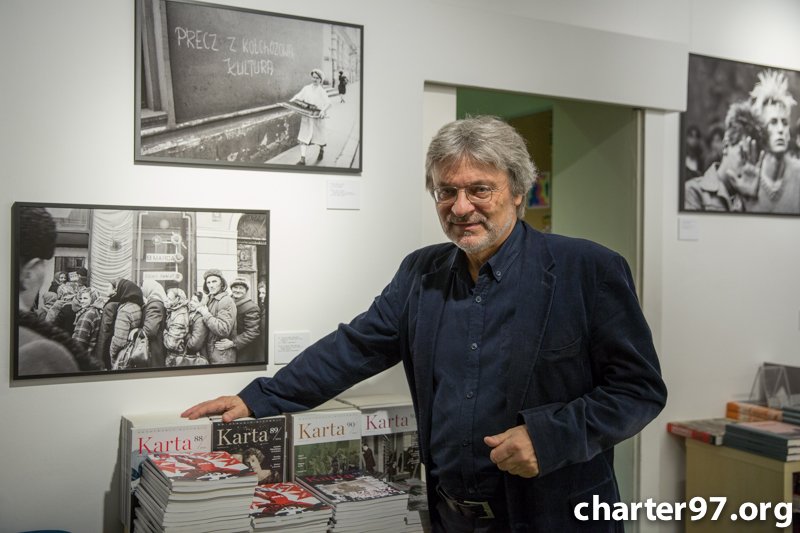
- You still influence politics. For example, today’s Deputy Foreign Minister of Poland Bartosz Cichocki is the former employee of the Charter.
- People who went through us can be found absolutely everywhere. In all parties and centers. On the 30th anniversary of the Charter we published a book in which the results of our work during this time period were summed up. It was decided to introduce our employees, at least mention everyone by name. But then I did not imagine that it was 1200 people!
And these are people who have done something real, and not just were sympathetic to us. How did it happen that so many people went through us? In the beginning, we were underground, and then we were a non-governmental organization, which always had little money to maintain a large staff. The financial side has always been limping. But, despite this, so many people worked with us.
As it turned out, they were people of all modern political formations. Our employee was the Speaker of the Sejm of Poland, very many politicians. Then there was not such a strong political gradation and people just engaged in various things, and then found themselves in politics.
Another reason could be that we contacted all those who wanted to, we were no opponents for anyone. We tried not to speak out about modern politics, taking someone's voice, because we were engaged in history and did not want to participate in political battles.
It's not so simple, but we somehow manage. We have never received any ambiguous proposals: services in exchange for money. There was nothing like this and we can say that the Charter exists in the democratic realities.
Many organizations told us that we are not like others, and this state of affairs is very difficult to maintain, it is complicated to distance ourselves from the political scene. If the organization is not determined, it automatically drops out of the game. And we do not. This is a very amazing thing. The approach, when history is studied in order to better understand society, and not to gain power, is a rather rare phenomenon. Maybe, this is especially appreciated in us.
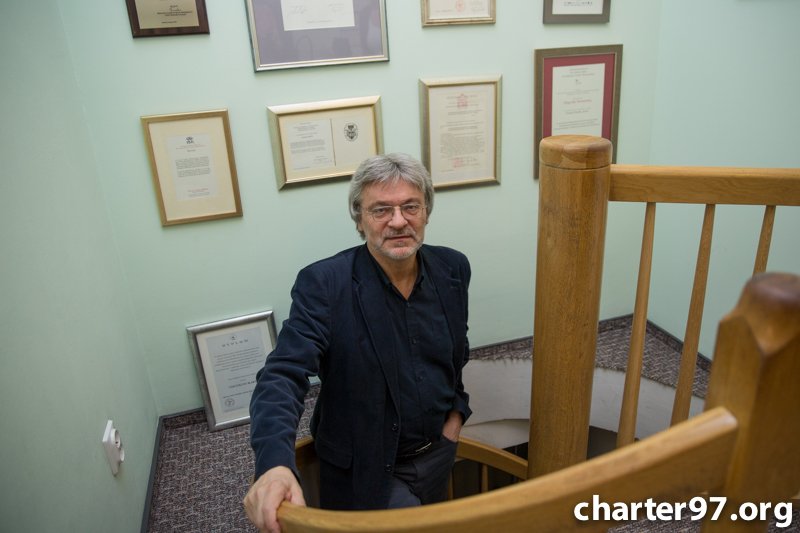
- Which most important projects of the publishing company within these 30 years would you like to note?
- The Charter has existed for over 36 years. We appeared in the first days of the year 1982, in the midst of the martial law. There is certain continuum in this. All the subsequent elements are laid upon this story.
In the book which was out of print to our 30th anniversary, in 2012, we summed up all the results of the Charter’s activity. We have done a lot for the next six years as well. But the most important thing is, we survived. We had absolutely no chance to exist for such a long time. We have no permanent budget, any financial guarantees for existence, we have never had a construction which would support us.
I never believed this beginning would be successful, I always thought that we were a fragile organization. However, after 36 years it would have been foolish to think that the Charter is some short-term project.
As for the projects, one of the most important ones is the one that we launched and shut down themselves. I mean the documentation of the repression of the Second World War. We were the initiators of recording the victims of the Soviet and German occupation. As it turned out, the Polish People’s Republic did not document the victims of the German occupation, but could have, as it was under the rule of the USSR.
We launched both these initiatives, being the only place in Poland where the investigation of the victims of both totalitarian regimes began. This was a very important undertaking, since in a sense we have saluted the military generation and saved the memory of many people.
Although, I think that this should have happened much earlier. About five million people are listed by names, their fate is told. This is already something. But this is not such a big figure, since we felt that 12 million people suffered from both totalitarian regimes.
Another achievement of our publishing house, I think is that we described the whole of the 20th century in a rather panoramic way. We tried to do this from a public point of view, and not from the perspective of the state. Such a method opens up new opportunities, especially before the 100th anniversary of the restoration of Poland's independence. We are preparing a book that describes all this century, it should appear this autumn.
The Charter set out to describe the whole course of history from 1918 to 2018, going through all stages, showing how Poland gained independence and how it was lost on the way.
The Charter developed a way to describe public memory, a description of history from the point of view of the society, and not the state. This was very important, especially in a situation where the Communist regime had been in power in Poland for so many years.
The history was completely falsified. The presentation of history from the perspective of the individual, and not from the perspective of the system, is a real discovery. At first it was not obvious, we put our accents exactly like this. And this is the real achievement of the Charter publishing company, that we were able to show the history from the point of view of each person separately, rather than a huge system. There is not even a question of what kind of system - democratic, totalitarian, dictatorial. We had to take a step back and return to the truth, which was distorted.
Some successes appeared already in the early 90's, because the Charter was a magazine with historical evidence, and not a journal of historical processing. We printed witnesses of history, not historians describing some events.
As it turned out, this is a kind of key to the truth, which makes it possible to understand what has become of our society. To the truth about the post-war period, showing, as everything was distorted, the truth, which makes it possible to mentally get rid of Communism. This is very difficult, because everyone had to walk this road themselves.
If we list something as our achievements, I would like to note that the Charter helped Poland to decide on the road. Nobody except us did this, and when narrative museums began to appear, they very often used our method of analysis, believing that the testimonies of individuals are more significant than generalizations that are usually false. Therefore, modern museums increasingly adopt our methodology, focusing on the stories of individuals.
- The Charter pays a lot of attention to the historical memory, to the archives of the victims of repression. The theme of the victims of repression remains sore for the Polish society. Meanwhile, what do we see in Russia and Belarus? The KGB archives are still classified, the Belarusian Minister of Internal Affairs wears the NKVD uniform on holidays, and a restaurant was opened at the place of mass executions, in Kurapaty, under the patronage of the authorities. The employees of the Memorial organization are being persecuted. How did it happen that, instead of commemorating the victims, the memory of executioners is worshiped today?
- This is a question of the democratic sensitivity of a society. In Poland, everything went differently, and the rejection of totalitarianism and Communism as a system was very strong, despite the fact that this regime existed for a very long time.
A significant difference between our countries is that after all political changes in Poland, the Communists were forced to leave the political arena, despite all the constructions that were supposed to prolong their existence. Even those parties that left the Communist environment were forced to change in order to somehow exist in this reality. To date, there are no groups in Poland that identify themselves with the Communist ideology. And this is the big difference between our countries.
In Poland, Communism has not taken root, despite the fact that it existed here for 44 years and it seemed to many that it had won. In the 1960s there was a feeling that Communism had completely reigned in the minds of people. We thought that we would never break out of it. And in fact it turned out that Communism in Poland was superficial, not rooted. And at the territory of the USSR communism was forced upon by a rigid hand. The system itself existed longer, the mechanism of repression was more brutal.
It should be noted that Communism in Poland was not so cruel, it could not change the face of the society so much. The Poles managed to escape from this ideology. But we have our own problems. We are not completely free from pre-war attitudes, especially the nationalist ones, which are also dangerous.
We constantly researched the history of political repression in the east. Together with Memorial, together with our Belarusian, Ukrainian and Lithuanian partners. And today, it is becoming very complicated to do it. The centers in the east are becoming weaker and weaker. Putin's policy opposes itself to historical truth, Lukashenka's policy is also a threat.
When it comes to the victims of repression and Communism, we are in completely different realities. In Poland there is full openness, state assistance. To some extent, there is a carefree approach, like, this work has already been done. And we see the complete opposite in the east of the border of Poland. Studies of repression seem rather superficial, even at the territory of Ukraine.
For me, this is a very sore issue. After all, the Charter in the 1990s created a community of all these countries for joint documentation of communist repression. It seemed that this is the only way to work. After all, the main information for Poland is beyond the eastern border, and not in the country itself. In the early 90's it seemed that we were able to reach every person, document every crime. From some archives came full lists of victims of Communism. This made a strong impression. And then everything began to shut down.
We mainly worked with the Memorial in Moscow, then the organization began to leave Russia. Today everything seems to be frozen, we get very little information about the victims of repression. Terrible situation.
I have a feeling that our partners have their hands tied. They are in such a difficult situation that they can not agree on something, and we are too weak an organization to help financially. In the 1990s, there was an opportunity to do something, since we received money for cooperation from the United States. The National Endowment of Democracy helped us, we received help together with Memorial, and shared funds. But after Poland joined the EU, the US decided that European structures should be engaged in our financing.
And our contact with partners in the east was interrupted. Just did not have the money.
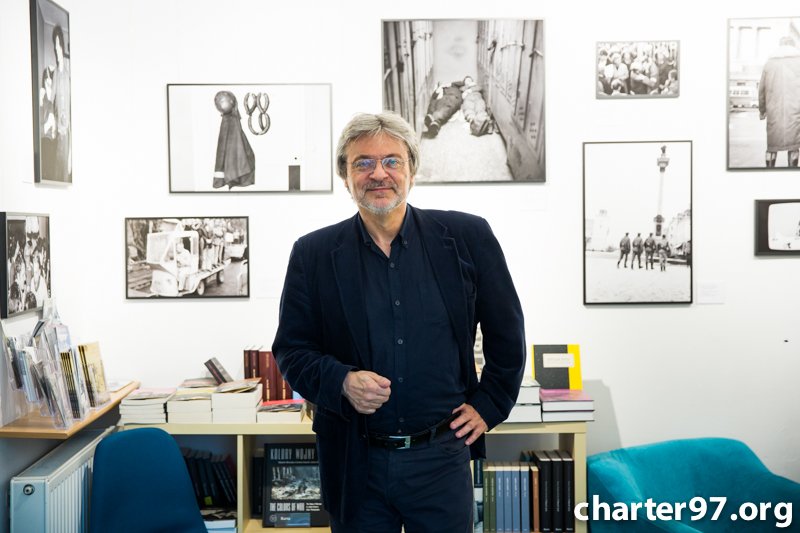
- I think you would agree that the dictatorships of Lukashenka and Putin, which came to replace the Communist regime, simply cover up the latter’s crimes.
- I agree. This is a very sad process, as all the work on the research of the totalitarian regimes should have secured the modern society from repeating the mistakes of the past. But we see, history repeats itself.
For instance, we were engaged in describing the Ukrainian events of the years 2013-2014. The Charter recorded, as it may seem, a historical milestone. It seemed there was a glimpse of hope for democracy, an opportunity to break free from the Soviet reality. Together with our Ukrainian colleagues, we published a book which was composed of testimonies and descriptions of those events. There was a feeling of some fundamental change, that Ukraine was standing on the threshold of democracy. However, it turned out that, despite all the activation of the society, they failed to fully establish the democratic principles. There is counteraction, political, economic one. Literally in every sphere.
It was a terrible experience for us. A sort of a hotline was set up between us and Ukraine. We collected all possible evidence and translated it into Polish. Then we published a book dedicated to the Maidan events in the Polish and Ukrainian languages. I had a feeling that it was a fantastic event of the world level. A victory over the Soviet system, accompanied with a transition of power to the people. However, this didn’t happen.
This was a monstrous experience. Today, the book about the Ukrainian events is not so much demanded and popular, as there is a feeling that everything is pointless. I hope that the situation will change, as there’s disappointment so far. When we worked on the book about the Maidan, we felt we were helping Ukrainians to speak up on everything they had come through. And that, by helping them methodologically, we were strengthening this new reality. It turned out, it was not so. We were unable to maintain this “hotline”. We had no money, they had no money. We could not travel, meet with each other. So the contact broke.
I believe that if everything was as before, if the Charter became a real partner for the centers across the USSR, they would have someone to lean on. We could support them, finding new opportunities abroad. However, the Charter is a non-governmental organization, which has no steady budget and sufficient amount of finance. We simply cannot find the money to build a proper bridge between our states.
There was another situation when we had a partner in Minsk. It seemed that this Polish-Belarusian line would be successful. But then, we got a warning from the Polish MFA that the Belarusian KGB was putting pressure on our partners.
It would be great if Moscow, Kyiv and Minsk were democratic. We all need this. As democracy is not some preference, but a basic need and a normal state of affairs.
The existing regimes are quite successful in limiting the field of activity. Taking a broader look, we had to quit a large number of projects. For example, the book “The Dissident’s Dictionary”, which was to be published in 24 post-Communist countries. Also in Belarus. It happened so it was published only in Polish. For me, this was a disgrace. As, for Poland, it is not so important, everything has already been described and depicted here.
It seemed to us that the traditions of non-conformism are fundamentally important for the whole region. That each country could identify itself with the brave people who fought against Communism.
We tried to publish the Russian version, realizing that if you can not do the work in all national languages, then let it come out at least in Russian. Natalia Gorbanevskaya, who worked on “The Dissident’s Dictionary”, suddenly died. And now we are forced to collect everything bit by bit. She had a whole network of translators, but we failed to restore it.
This was a terrible experience. After all, the Charter did this not for Poland, but for the entire region. The experience of non-conformism is extremely important for our countries. The people who have changed the reality around themselves are wonderful life examples.
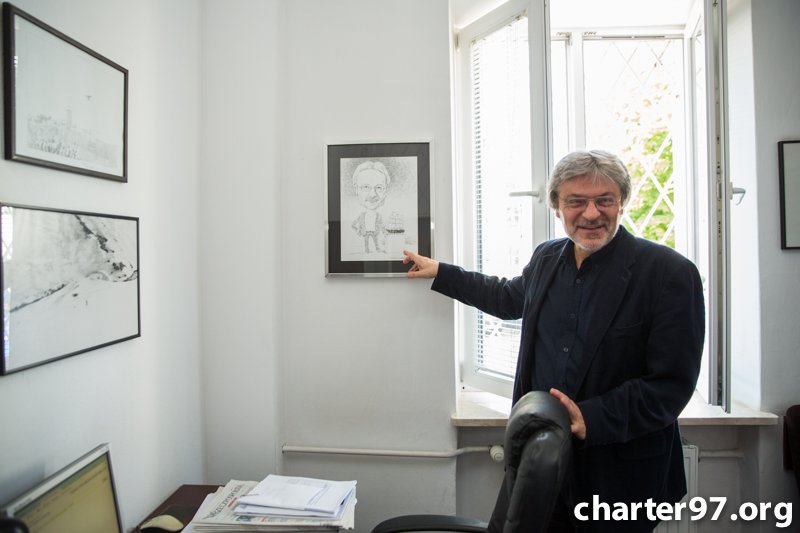
- You published the book by former Belarusian presidential candidate Andrei Sannikov “The Belarusian Roulette” in the Polish language. Why did you decide to do this?
- We took the events that were happening at the territory of Belarus after 1996 with great pain. We had a feeling there was nothing we could do to help Belarusians. Naturally, we had partners, there was intensive work in early 1990s. The contact with Minsk was permanent and of high priority. In 1996, we published a book in the Belarusian language about the events of the spring that year. There was a feeling we should throw all energy against Lukashenka, it was impossible to accept him. And then we all witnessed weakening. Our partners started dissolving and disappearing.
Years passed, and we didn’t help Belarusians in any way. No one knew how to help. We simply abandoned this field of activity. Before Lukashenka came to power, we actively worked with Belarus, it seemed everything was going in the right direction, the process of transformation of the society from Communism to democracy was going on. However, everything turned upside down. And the most unpleasant thing for us here was our own helplessness.
The year 2010 and the presidential elections in Belarus were very important for your country and for the whole region. The book by Andrei Sannikov is very valuable because it represents an independent approach. This is not a description of the situation, which is affected by the shadow of Lukashenka. We understood that we are translating the unique evidence into Polish.
Unfortunately, in Poland no one believes in Belarus. And the democratization of Belarus is not an argument, because there is “Lukashenka, who will rule until the end of his days.” And we believe that Poland should support all steps that help to democratize Belarus. But even after the publication of this book, the policy of showing Lukashenka as not the greatest evil continued. It could have been worse. For example, if Russia absorbs Belarus and we are bordered by Putin.
I do not agree with such a policy of Poland, which takes “lesser evil.” Therefore, the publication of Andrei Sannikov's book was a reaction to this reality and a proof that free Belarus exists. And there is a person who has risen to defend democratic values and tells the story from an independent point of view.
I view the publication of Sannikov's book as my duty. If we have real partners, then we must support them.
Unfortunately, I have a feeling that our partner field is narrowing more and more, and not expanding. In the 1990s, it would never occur to me that this is possible. Then it seemed that the relationship with Moscow was a real revolution. Especially in 1993-94, when the system collapsed not only outside of Russia, but also inside it.
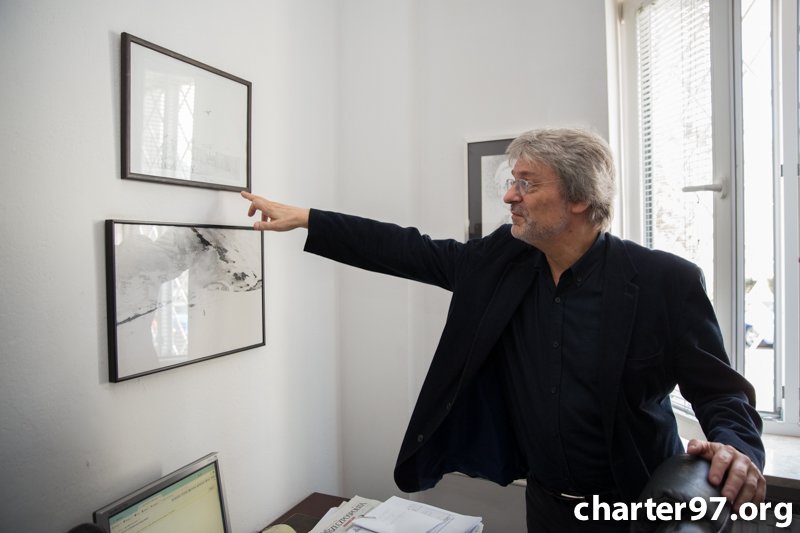
- Maybe, this is due to the reason that the modern generation does not remember that their parents struggled against the Communist regime? Why do the Poles forget about it?
- You’ve asked a very good question. This is not the lack of memory. This is a sort of stupidity. I think this is the result of the over-influence of democracy. As much as democracy is a better form of governing compared with totalitarian regimes, as much it has its own weaknesses.
It is very showing that the times of Communism in Poland, the times of the Polish people’s Republic, are not regarded as an important historical experience, but as something that should be mocked at, something not real. As if “real Poland” appeared in 1989, and that, previous one, was fake. Even the people whose major part of life went at those times are trying to distance, to have nothing in common with all this.
This is terrible infantilism. We are constantly engaged in describing those processes, constantly look back. And today's politicians do not. They look back only when they are interested in this and see history as a tool for political struggle.
This is a real falsification, the use of history for their own purposes. Honestly, it would be necessary to protest each time when politicians are engaged in history. After all, this has very little in common with the truth. We just stopped reacting to it, because there's no point in that. But such things contribute to the fact that the society loses sensitivity and memory.
After all, as a result, we received Lukashenka's regime in Belarus and Putin's regime in Russia, whose past is even more striking proof that their regimes are a continuation of the communist past.
The fact that Lukashenka began to be accepted and regarded as a democratic ruler is a kind of simplification of the situation, which is more beneficial and convenient. It is easier to accept it than if Putin replaced him, who is the true successor of communism. And Lukashenka - so-so, not completely.
This is a very serious problem when society loses its historical memory. I believe that this is happening in Poland. Another vivid example is what is happening around the 100th anniversary of Poland's independence, which should be a huge holiday.
-We know that you are handling a project dedicated to the 100th anniversary of Poland’s independence. What is being done in the framework of this project?
- We will simply tell about these hundred years. The book in the framework of this project is expected to appear in September.
There will be no propaganda, it will be a very sad book, telling about the fatal policies at different time stages. We will tell about contemporary Poland.
This won’t be a lighthearted story. The book will be free of any political bias. We will also show the period when Poland lost independence, and how it happened.
It turned out that the beautiful date we are celebrating this year has no message. There are various funds, organizations which deal with the holiday, but there is no message. We divided our story about independence into 52 parts, since January till December the Charter tells about this period in the Rzeczpospolitej and other media. No reaction.
People somehow perceive these messages, but there is no public resonance. It seems to me that when we get to the present times in our story, everything will change. After all, modern events have their own eyes. But it is very characteristic that people do not have their opinion about the past.
The Charter shows the fundamental mistakes of Poland, which lie precisely in history. We present the information without our own comments. We just quote historical sources. Of course, when we make a mistake — everyone says about it right away, and when there are no mistakes - there is no resonance. It's very strange that no one reacts to this. Everyone is just talking about the hundredth anniversary of independence, but no one is interested in the history of this century.
We would like a real debate about the statehood of Poland and its mistakes to take place after the publication of the book on the eve of the November anniversary. So that it would be not only a holiday for the sake of a holiday.
After all, this date is very important. For these 100 years, Poland had 50 years of independence and 50 years of dependence. Exactly half to half. Unlimited joy over the years 1918-19, but the reluctance to take an interest in 1939 and the subsequent years is too simple. And this is our history, what happened to our state. And what we have done with this state, for example, the hatred towards the inter-war Poland by the national minorities - all this will be in our book.
I think that when the book is published completely, there will be no resonance. There will be real talk about the internal state of Poland, and about the relations with neighbors. After all, this is constantly on the agenda. Up to where the modern border should be. After all, the Polish emigration still believes that the „eastern borderlands“ should belong to Poland, and not to Belarus, Ukraine and Lithuania. It would seem that such thinking is a complete anachronism, it is impossible to think so in the modern world. But there are people who still believe that Poland should return to its „borderlands’’.
I think that the 100th anniversary of Poland's independence is a great opportunity for discussion, which has not been used up to now. There is a very great potential for this date, which the Charter wants to use.
- There was Charta-77 in the Czech Republic and Slovakia, KARTA in Poland, and Charter’97 in Belarus. What do they have in common, how do you think?
- When we were thinking of a name for our newspaper, the Charta-77 was something we consciously identified ourselves with. Back then, KARTA was a sheet of paper (kartka in Polish — Сharter97.org), we were exactly a sheet of paper as an underground newspaper for a long time.
This also became a reason why we picked such a name. Also, there is a consonance with the Declaration of Rights of Human and Citizen (in Polish - Karta praw człowieka i obywatela, - Сharter97.org).
So, when we took this name, we decided we needed to somehow explain this to the Charta-77. We sent them a letter in which we told that we had picked a name for our newspaper under their example.
When KARTA came out of the underground and decided to talk about the activities of the Charta-77, it turned out that there were no recorded testimonies. We specifically searched for people in the Czech Republic and Slovakia who could tell us about their activities. It's very strange that they did not write about themselves.
We identified ourselves with the Charta-77, because we felt that they were very close to us from all opposition movements. They were creative, intellectual, open to the human form. Without any ideology.
As it turned out later, there already existed a Karta in the interwar Poland. Czeslaw Milos worked there at a time. True, they did not exist for so long, only three issues of this edition were published. If we had known about this, we would have never taken the name. That edition adhered to the left-wing views, and we would not want such a connotation.
And when the Charter-97 appeared in Belarus, we immediately had a sense of community. It has always been important for us that there is an independent media at the territory of Belarus, which influences public opinion. And the history of he Charter-97 shows the real state of affairs in Belarus. You were forced to leave your country. This shows that the situation is neglected and unhealthy to the point that people have to emigrate. But I understand that if such a step is taken to continue the work and maintain the status quo, then the vision of return is at the forefront.
I have a feeling that this is to some extent a challenge for Poland. The fact that the Charter-97 is in Warsaw is a kind of a duty for Poland, a promise to help you return to Belarus.
